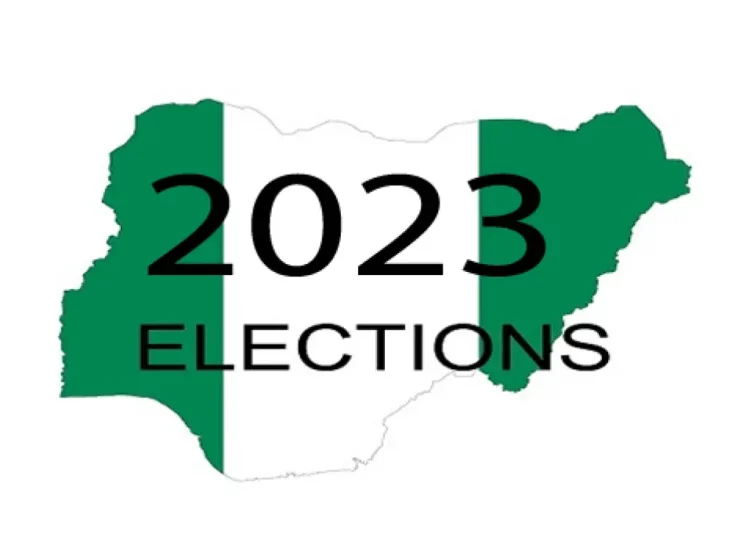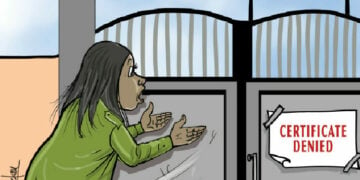The on-going quarrels in the country over a lot of issues about the forthcoming general elections are surely the politically equivalents of tectonic forces that, according to geographers, tear the soil apart to allow for volcanic eruptions. All the implosions within some of the major political parties and the explosions across the political scene are all manifestations of the heightened disagreements that have continued to characterize the current politicking in Nigeria.
Even if, as is being argued, political crises are resolvable, the rising tension over the contest for power by the political parties and their respective presidential candidates and, to a lesser extent, the other candidates at the lower levels has already begun to cause a disorientation of the populace and the resultant disruption of the key aspects of the on-going electioneering, which have made the solutions to the problems to appear too distant. The contentions over the religious, ethnic and sectional backgrounds as well as the political antecedents of one or another of the presidential candidates are already threats to the elections that are billed to take place in the next few weeks.
Understandably, anxiety on the one hand and apprehension on the other hand over the possibility of the conduct of the 2023 elections have risen, both of which are widely expressed in diverse ways. As once stated on this page, most Nigerians are living between the hope that the elections will hold considering the assurances by President Muhammadu Buhari in this regard and the fear that they will not because of the prevalence of violence and some other ugly features in the country.
This new year, 2023, in which the elections will take place is a reality that will definitely either justify or nullify any of the feelings about the national exercise. It is a reality, depending on how it is handled by the citizens, that will at best redefine and at worst further misdirect the country in terms of political orientation and goals.
2023 is, just like 1999, 2003, 2007, 2011, 2015 and 2019, an election year in which the fruits of the efforts made in all those previous years towards the consolidation of genuine democracy will be reaped while the current key political players are duly expected to work for the tremendous improvement of the system. The year should, in fact, be a period within which healthy politicking and good governance which are the hallmarks of democracy will become a lot more real in the country.
However, the attitudes of many of such key political players towards 2023 clearly indicate a low appreciation, on their part, of its significance. A lot of their pronouncements and actions on issues relating to the forthcoming elections are reckless enough to suggest that their concerns are far more about themselves than about Nigeria.
The crises within some of the major parties, for example, which have substantially eroded both the strength and credibility of those parties as platforms for contest are severe enough to cripple the electoral process. All such internal squabbles have rubbished the concept of partism on the basis of which loyalty to the party becomes an obligation that must be observed by all members.
As the crises linger, confidence of the people in the parties speedily wanes as a result of which the entire system continuously becomes less dependable. The Peoples Democratic Party (PDP) is a perfect example of a party that records deficit in terms of both confidence and loyalty as a result of a highly pronounced conflict among its members with even five of the state governors elected on its platform clearly expressing their intention to support the presidential candidates of some other parties.
All the allegations of clandestine moves by some state governors of both the PDP and the All Progressives Congress (APC) to undermine the presidential candidates of their respective parties and the denials by them are indicative of the extreme uncertainty that has permeated the political terrain. While this is going on at the upper level of the party hierarchy, the ordinary members are unstoppably sinking into confusion.
What is perhaps most worrisome is the fact that a lot of the pronouncements and actions of the so-called aggrieved members of each of the parties as well as the reactions to them are done in a manner that portrays an intention to cause more damage to the process. The resultant continuous loss of faith in the parties and, by extension, the existing political system is terribly inimical to the country’s democracy.
It is not known how, for example, the PDP which ruled the country for more than one and a half decades and would have therefore been an alternative platform, but is now fractured, can make the anticipated impact during elections. A lot of the happenings in the party and in even some other ones are a clear proof that they are not only operationally defective, but perhaps even conceptually and structurally so.
There are also some distractions such as the endorsement of candidates by some prominent individuals and groups as well as the declaration of support for some of such endorsements, all of which have added to the prevailing tension. The endorsement of the Labour Party’s presidential candidate, Mr Peter Obi, by the former Nigeria’s leader, Chief Olusegun Obasanjo, to which both APC and PDP angrily reacted is something that widened the scope of the confusion.
Although Obasanjo possesses the right to announce and even recommend his choice to others, the debate that the announcement has generated is an avoidable distraction. Even with the reaction by the presidential flag bearer of the APC, Asiwaju Bola Ahmed Tinubu, that the Obi’s endorsement by Obasanjo would, just like the ones he did in the past, fail and the response of PDP’s Atiku Abubakar that the former leader has no power to determine who becomes the next president of Nigeria, the endorsement is already a subject of varying interpretations and therefore not particularly helpful to the process.
Unarguably, Nigeria is experiencing some kind of hubbub as it moves towards the general elections that are supposed to provide cure to its numerous ailments. The failure of some of the critical stakeholders to appreciate the compelling need for the due observance of the established rules of the game makes it difficult for the ordinary citizens to develop the confidence that the parties can be satisfactorily re-packaged before the conduct of the elections.
It is good for all Nigerians to be happy that 2023, which holds lofty promises for the country, is already here. What remains now is a great deal of work by the citizens, especially those who are responsible for the management and/or monitoring of the political and electoral processes, to ensure that the disturbing pre-election hubbub is effectively tackled so that all those promises can become realities.











